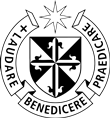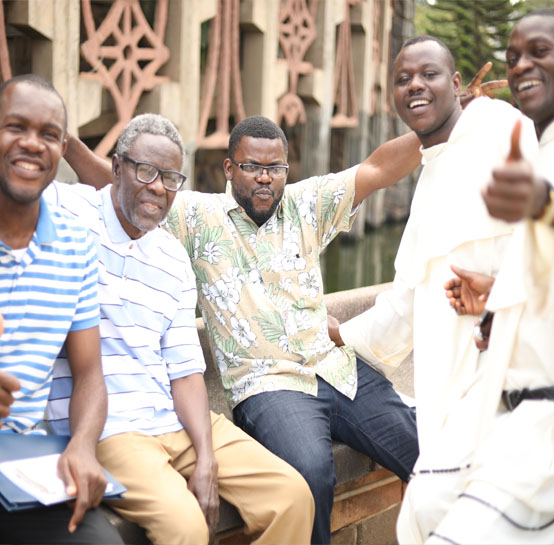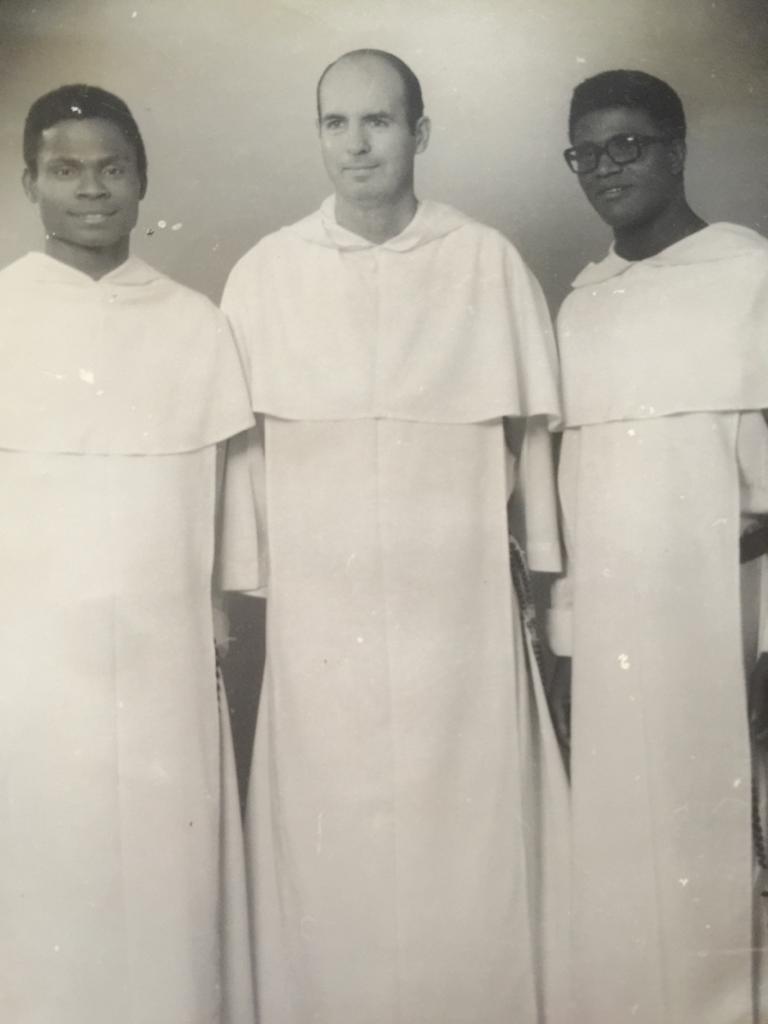The most important question we need to ask ourselves is: how best are we to love God above all things and how best are we to love our neighbor in our community life and apostolic life?The question goes to the very heart of our Christain vocation: How do I love? how do we love? Every other question is secondary and must be related to this primary question.

CHRISTíS SACRIFICE FOR SINS - HEBREW 10:12-14
The central theme of this reading is CHRISTíS SACRIFICE FOR SINS. The reading tells us that Christ has offered one single sacrifice and takes his seat forever at the right hand of God. Here, the author contrasts Christ with the Jewish priests who made sacrifice over and over again. Christ by dying on the cross has offered one single sacrifice which cannot be repeated. He did it with his own blood and not with the blood of goat and sheep. The blood of goat used in the Jewish atonement of sin is only a figure of the blood of Christ. The author argues that how can the blood of goat and sheep who are without reason take away sin. It is incapable of taking away sins. The Jewish annual sacrifice of sin known as Yom Kippur is only a remembrance, (anamnesis) of past sins. By this, it means that it is incapable of wiping sins away. Only Christís blood can take away both past sins and future sins. Christís sacrifice has accomplished what Jewish sacrifice of sin could not. His sacrifice is complete and cannot be repeated.
The sacrifice of Christ is made present and real in the Eucharist. The Eucharist is the memorial or re-presentation of Christís sacrifice. In the eucharist, the event of Christís sacrifice becomes present and real. Each time, the Church celebrates the Eucharist, she commemorates Christís sacrifice and this sacrifice is made present. Thus, the Eucharist is a sacrifice because it makes Christís sacrifice present and it applies its fruit. As often as the Mass is celebrated, the work of our redemption is carried out. The sacrifice of Christ on the cross and the sacrifice of the Mass are one single sacrifice. The difference lies in the manner of offering. On the cross, Christ is both the priest and the victim who offered himself in a bloody manner. At Mass, the same Christ offers himself through the ministry of the priest in an unbloody manner By our baptism, we share in Christís priesthood. This is called common priesthood of the faithful. We participate at Mass as common priests and unite our sacrifice with that of Christ. Second Vatican Council captures this when it says that all baptised Christians are consecrated to become a holy priesthood, that through their works they may offer a spiritual sacrifice. All the disciples of Christ persevering in prayer and praising God should present themselves as a sacrifice, living, holy and pleasing to God (Lumen Gentium, 10). Thus, the spiritual sacrifice we should offer to God as common priests is the sacrifice of holiness of our lives. The sacrifice of righteousness is what pleases the Lord. May God help us to offer our lives as a living sacrifice to God. Amen.
© 2022 - OP Studentate Media - All Rights Reserved










.jpg)
.jpg)
.jpg)
.jpg)
.jpg)
.jpg)
.jpg)
.jpg)






